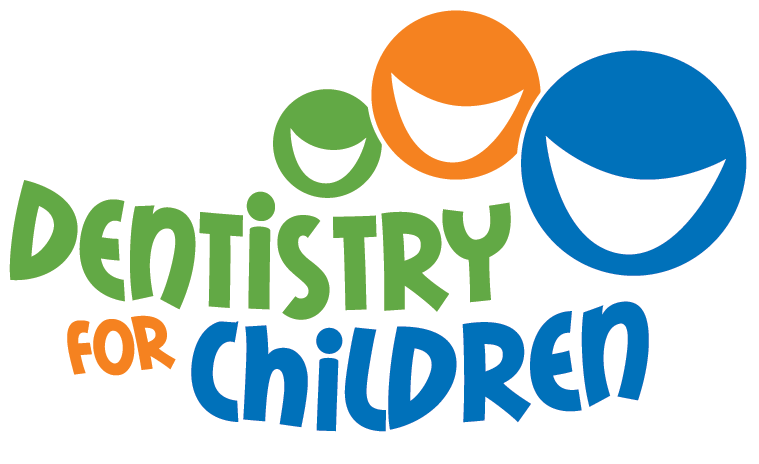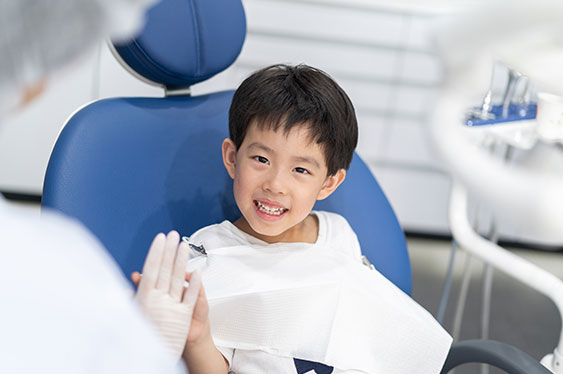If your child needs a dental procedure, sometimes sedation dentistry is necessary to help your child be more comfortable and pain-free throughout the procedure. There are several different sedation options, all with their own distinct purposes and different levels of sedation. Our gentle, caring pediatric dentists at Dentistry for Children are here to make sure you and your child are as stress-free as possible when a dental procedure is needed.
Is Sedation Dentistry Safe for Children?
When you work with one of our passionate and local Atlanta sedation dentists, your child will be in great hands. No matter what type of sedation your child needs, our doctors will safely and effectively help your child through their procedure.
Prior to the procedure, you and your child will meet with your dentist to discuss your child’s medical and dental history. Then, your dentist will walk you through pre-sedation instructions and talk about any potential risks to keep your child as safe as possible. Prior to the procedure, keep them from eating a heavy meal, and if your child is not feeling well or has a fever, call our office to reschedule the procedure. These are just a few steps to ensure your child’s safety during any type of sedation dentistry.
Types of Sedation Used at Dentistry for Children
Different procedures require different levels of sedation. In our office, our doctors utilize four different types of sedation for dental care.
- Nitrous Oxide: Nitrous oxide, commonly referred to as “laughing gas,” is a type of conscious sedation. Nitrous oxide is breathed in through a small mask placed over your child’s nose that gives a euphoric, tingling sensation without being put completely to sleep. Laughing gas is often used to ease stress or anxiety involving a procedure.
- Mild to Moderate Sedation: Mild to moderate sedation is a form of oral sedation that keeps a patient calm, awake, and drowsy, but doesn’t put you to sleep. Patients breathe on their own and have the ability to respond to the dentist during the procedure.
- Deep Sedation with IV: Deep sedation is intravenously administered and puts the patient asleep throughout the procedure. Your child may make small movements or noises during the procedure but will not breathe on their own. While your child is under deep sedation, he or she is being closely monitored by a certified anesthesia professional, such as an anesthesiologist or a certified nurse anesthetist. This includes, but not limited to, monitoring your child’s heart rate, blood pressure, and oxygen levels while the dentist or oral surgeon performs the procedure.
- General Anesthesia: General anesthesia is used to put the patient completely asleep during a procedure. Just like deep sedation, your child will be monitored by a certified anesthesia professional in addition to the dentist or oral surgeon performing the procedure.
Post Sedation Dentistry Care Tips
The effects of laughing gas or other types of sedation dentistry may leave your child feeling groggy, drowsy, giggly, and possibly nauseous following the procedure. This feeling should only last a few hours for deeper sedatives, but the effects of laughing gas typically subside by the time the child leaves the office.
Following a dental procedure using sedation, monitor your child and have them drink water and stay hydrated. Have your child eat soft, lukewarm foods, such as smoothies, lukewarm soup, mashed potatoes, or pudding. If you notice any swelling, place an ice pack on the outside of the procedure site to help ease the swelling. If swelling or severe pain lasts over 24 hours, please contact one of our conveniently located offices.
Learn More About Sedation Dentistry at D4C Georgia!
If you have any questions about sedation dentistry or would like to schedule an appointment, contact one of our conveniently located D4C Georgia offices. Any of our Georgia kid’s dentists will be here for you!


 Find Us
Find Us